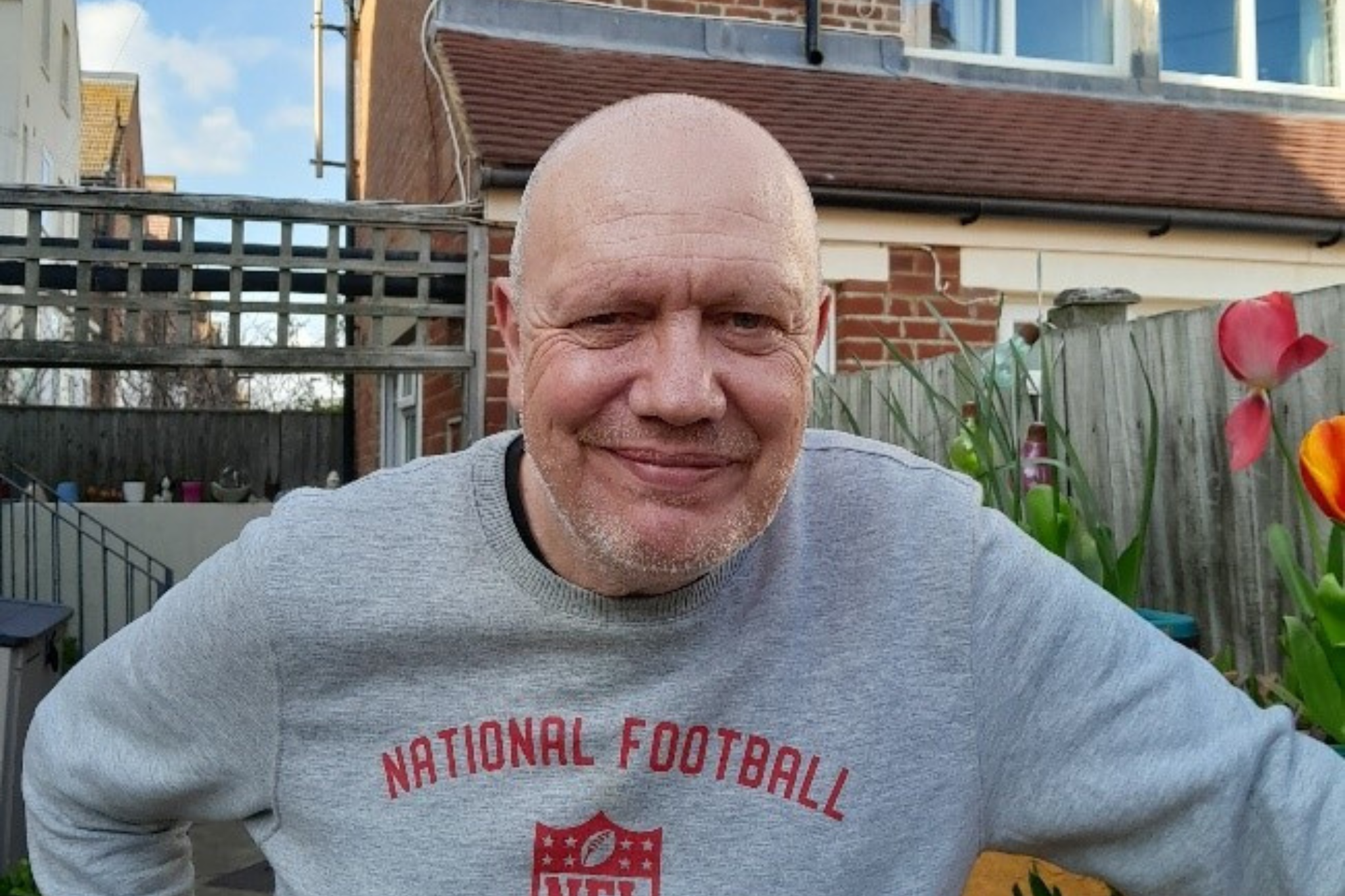Tim’s story
Discover Tim's story of rehabilitation at Egerton Road following his brain injury.

Tim developed an acquired brain injury (ABI) after undergoing surgery to remove an aneurysm. He came to live at Egerton Road, where he has been supported to regain some independence.
We are delighted that Tim has since moved on from Egerton Road to live in his own home in the community.
After undergoing the first stages of his rehabilitation in an inpatient facility, Tim required a placement that could offer him longer-term support in a community setting. His social care team identified Egerton Road as being a suitable environment for him, and he came to live at the home shortly after. When Tim first arrived, he was struggling with his memory, executive functioning, and emotional regulation. He would often become confused, and experienced difficulties navigating around the home, which was distressing to him.
The multidisciplinary team (MDT) at Egerton Road used psychological and orientation assessments to gain a further understanding of Tim’s needs. This enabled them to develop comprehensive support plans, produced with input from Tim, his social team, and his family. Once these plans were in place, the home’s psychologist and occupational therapist worked with Tim’s keyworkers to develop memory strategies to support with tasks such as diary keeping, calendars, and prompting. In addition, improving his independent living skills was a key focus for Tim, and he was supported with his activities of daily living on a one-to-one basis.
As Tim’s skills improved, he was motivated to increase his independence, asking to be relocated to the home’s self-contained annexe to continue his journey. The team at Egerton Road took proactive steps to support Tim’s wishes, thoroughly planning the transition and putting the right support in place. Other measures were implemented to ensure Tim’s safety as he became more independent, including adding a GPS tracking system onto his phone, and staff shadowing him on outings initially.
Following his transition to the annexe, Tim demonstrated significant progress in his rehabilitation. He continued to engage in his life skills sessions in his flat, receiving regular input from the home’s MDT. With the support of the team, Tim gradually expanded his orientation and navigational abilities, gaining the ability to leave and return to the home without staff support. He learnt to organise his daily activities independently, including planning visits out to the local area and beyond.
Perhaps one of the most important outcomes for Tim has been his enhanced ability to control his impulses and regulate his emotions effectively. He has also grown more confident in his abilities, which has enabled him to take on more responsibility, such as cooking more frequently with less staff support. Over time, Tim’s ability to organise, plan his behaviour, and function effectively within a routine has improved significantly. This meant he was able to carry out important tasks independently, including his shopping and laundry.
Having completed his rehabilitation at the service, Tim has now been able to move on to live in his own home in the community. The management team at Egerton Road are very proud of his achievements and were delighted to support him with his move. Tim’s case is a testament to how structured, strategic support can enable individuals to regain their independence and improve their quality of life following severe health crises.
Tim has excelled at Egerton Road, following a previous failed placement. Due to the severity of Tim’s brain injury, professionals believed that it would be unlikely for him to achieve the things he has. I am confident that the love and companionship and the specialised input he has received from the Egerton Road team went a long way to putting him where he is now. Tim has now moved on to the next stage in his journey, and is currently living independently in his own flat with a care package.